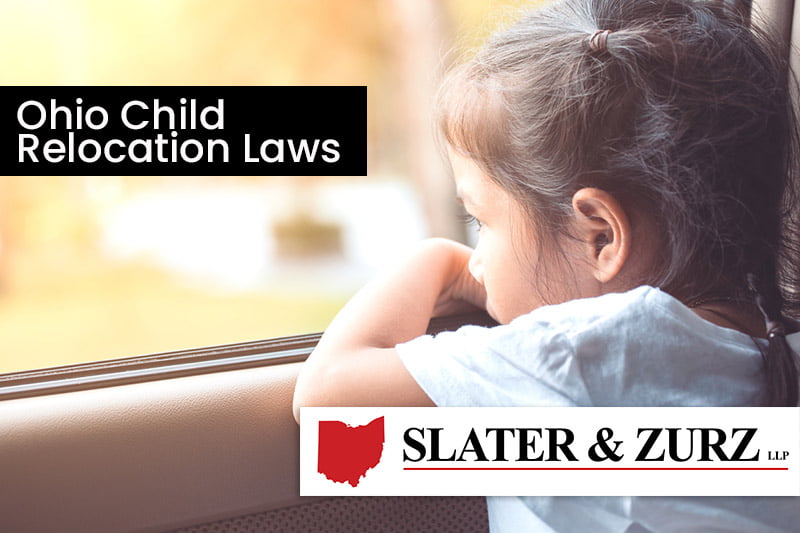With internet dating becoming more common and women being more prevalent in the workforce, situations sometimes arise where parents sharing custody of their children face a prospective relocation of the child or children–possibly some distance away from where the other parent is located.
What can be done about this if you are the parent left behind and object to your children permanently residing in another state?
The first thing you must do is act quickly because you want to “preserve the venue” you and your children currently have. This way, an out-of-state court cannot automatically establish legal jurisdiction over custody decisions involving your family. After you establish a venue, you can begin to make a case of why your ex-spouse should not be allowed to relocate with the children. If they have already relocated, it is possible the court could order the children to be returned to the state where they formerly resided.
A child custody lawyer will explain “child relocation” to you and can represent you if you decide to fight the relocation. In many cases, a family law attorney will significantly impact how your case is resolved and help you take steps to ensure the outcome you seek.
In many situations, the parent has sole physical custody of the child and has the right to make a long-distance move, but this does not mean the non-custodial parent cannot challenge the move in court and attempt to prove it is not in the best interest of the child. If the parents share custody—50% and 50%–opposition to a child relocation by one parent will almost certainly wind up in court.
The Best Interest of the Child
The legal standard used to determine the best interest of the child in Ohio is found in Ohio Revised Code (ORC) Section 3109 (F)(4). The “best interest” factors are:
- The wishes of the child’s parents regarding the child’s care;
- If the court has interviewed the child in chambers regarding the child’s wishes and concerns as to the allocation of parental rights and responsibilities concerning the child and wishes and concerns of the child as expressed to the court;
- The child’s interaction and interrelationship with the child’s parents, siblings, and any other person who may significantly affect the child’s best interest;
- The child’s adjustment to the child’s home, school, and community;
- The mental and physical health of all persons involved in the situation;
- The parent is more likely to honor and facilitate court-approved parenting time rights or visitation companion rights;
- Whether either parent has failed to make all child support payments, including all arrearages, that are required of the parent according to a child support order under which that parent is an obligor;
- Whether either parent or a member of the household previously has been convicted or pleaded guilty to any criminal offense involving any act that resulted in a child being an abused or neglected child; whether either parent in a case in which a child has been adjudicated or neglected child previously has been determined to be the perpetrator of the abusive or neglectful act that is the basis of an adjudication whether either parent or any member of the household of either parent previously has been convicted of or pleaded guilty to a violation of section 2919.25 of the Revised Code or a sexually oriented offense
- Whether the residential parent or one of the parents subject to a shared parenting decree has continuously and willfully denied the other parent’s right to parenting time following an order of the court;
- Whether either parent has established a residence or is planning to establish a residence outside the state;
- The parent’s ability to cooperate and make joint decisions on child-rearing;
The Uniform Child Custody Jurisdiction and Enforcement Act (UCCJEA)
Ohio follows what is known as the Uniform Child Custody Jurisdiction and Enforcement Act (UCCJEA), which sets standards for when a state may and may not decide on a child relocation action crossing state boundaries. In Ohio, information about the UCCJEA is found in ORC 3127.15. The state has the jurisdiction to make the initial determination in a child custody proceeding and determine which state’s family court will handle jurisdiction and enforcement of custody.
Do I Need A Lawyer in a Child Relocation Case?
Judges are given significant discretion when deciding what will be in a child’s best interests. For this reason, it is critical to have the representation of an attorney who knows the laws concerning child custody and relocation and how the courts operate.
When you hire Slater & Zurz as your family law attorney, they will thoroughly evaluate your situation and that of your child’s other parent. They will then formulate arguments to support your position on the proposed relocation. If you are a parent who is not relocating, your attorney may investigate the potential benefits or drawbacks of the proposed move to support your position further.
Your ex-spouse should notify you of a potential long-distance move 60 to 90 days before it occurs. This gives you time to contact Slater & Zurz by calling and speaking with a Cleveland child custody lawyer at 1-888-534-4850. They will set up an initial consultation with you.





